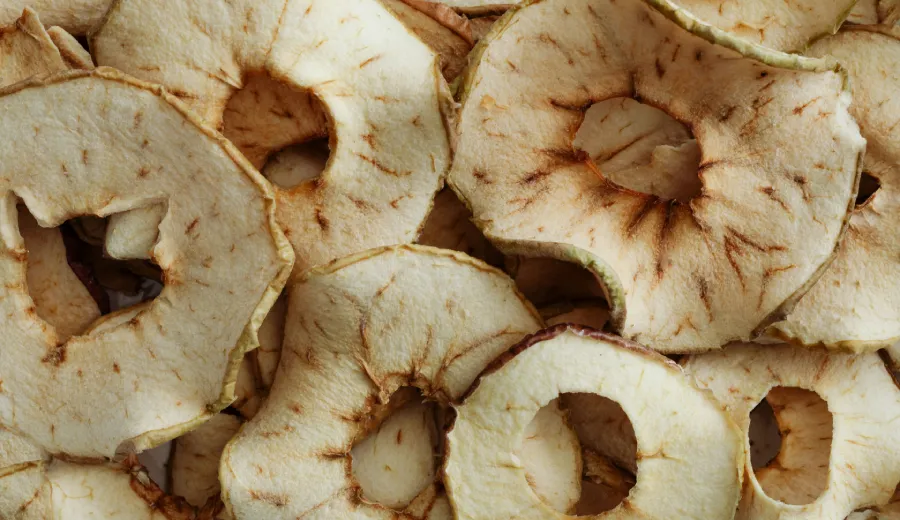
Dried apples suppliers support a wide range of food sectors by delivering shelf-stable, high-quality fruit ingredients. With their soft texture and concentrated flavor, dried apples are ideal for use in snacks, baked goods, cereals, and more. The main producers include China, the United States, and Poland.
Apples (Malus domestica) are one of the most popular fruits worldwide. They can be sweet or tart and have a crunchy bite. People eat them fresh, drink apple juice, or use them in recipes like pies, sauces, and salads. Apples have been cultivated for thousands of years and are important in cooking, both at home and in food production. Their mild sweetness and chewy texture make them a great match with other fruits like pears, plums, and cranberries.
Dried apples come in different types and forms to serve various cooking, selling, and manufacturing needs. They can be made from well-known apple varieties like Fuji, Granny Smith, Gala, and Golden Delicious. Each type has its own unique taste and texture.
Here are the common forms available:
Dried apples can be sweetened or unsweetened. They can also be sulphured or unsulphured, depending on the processing method and market demand. Finally, they can be available either with or without skin.
Apples are usually picked from late summer to early fall. When they are ready to harvest depends on the type of apple and where they are grown. For example, Gravenstein apples are often ready in August, while Fuji apples are harvested in October. Picking apples at the right time helps them stay tasty and last longer, whether they are sold fresh or dried.
Several countries are the main producers of apples in the world:
These countries help meet the growing demand for both fresh and dried apples, serving the retail, food service, and industrial markets. In 2023, the global dried apple market was valued at about USD 161.5 million. It is expected to grow to around USD 215.79 million by 2032. This indicates a yearly growth rate of 3.27%.
Apples have been an important part of diets around the world for many years. Right now, the apple market is changing with new trends.
More people are interested in organic and heirloom apple varieties. There is also a growing interest in dried apple snacks. Apple powder is now often used in health drinks and functional foods.
Consumers are also looking for snacks that are low in sugar and high in fiber, which makes dried apples popular for health-conscious choices.
Nutrada connects buyers with trusted dried apples manufacturers from top countries like the United States, Poland, and China. If you need fresh apples, apple powder, or dried slices, Nutrada simplifies wholesale buying. You get direct access to global suppliers, fruit wholesalers and great prices.
Dried apples usually come in bulk boxes, plastic-lined bags, or vacuum-sealed packs. They include food-grade certifications and important technical documents. These packaging options are designed for wholesalers, snack makers, and food service businesses.
Are you thinking about starting a dried apple snack, trail mix, or baking blend? Nutrada's network of suppliers offers OEM and private label options. You can choose from dried apple rings, powders, and chips, all with customizable formats and packaging.
You can find certified organic dried apples from suppliers in the U.S., Turkey, and China. They meet USDA Organic and EU Organic standards. These products are gaining popularity in natural product markets.
Register on Nutrada to view a complete list of suppliers for apple powders, dried apples, and dried fruit ingredients. Whether you work in retail, snack foods, or ingredient sourcing, Nutrada makes it easier to find what you need with its worldwide network of suppliers.